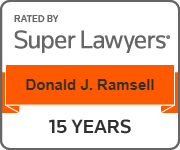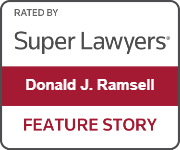THE TRUTH ABOUT CALIFORNIA DUI ENFORCEMENT
FOR EVERYONE FROM POTENTIAL
JURORS TO CITIZENS ACCUSED
DARRYL GENIS
Three, West Carrillo Street, Suite 203
Santa Barbara, California 93101
Serving Santa Barbara, San Luis Obispo and Ventura Counties
1-800-DIAL-DUI (area code 805)
The following is the opinion of the author and is not intended to give legal advice addressed to any one specific person,
or situation. The reader is advised to seek legal counsel if prosecuted for DUI. This information is of general nature
intended for readers age 21 or older and is based on California DUI law.
Drinking and driving, although not illegal per se, is still a dangerous combination. Please, designate a non drinking
driver, use public transportation, or do not drink. If you are stopped for suspected DUI, it is possible that a mistake in
judgment will be made by the officer resulting in your arrest. Nearly 45% of all DUI arrests do NOT end up in a DUI
conviction. Officers are human and may mistake fatigue for alcohol. Machines are not perfect. If you end up being arrested
, call a qualified CDL attorney to be sure of the facts."
THE BASICS: Let's start with some basics. Driving while under the influence of alcohol or any other drug is antisocial
behavior. The horror caused by the death or maiming of a loved one by a "drunk driver" is unthinkable. The pain caused
by such an incident scars forever not only the victims but the drinking driver, who is usually a decent, law abiding
citizen. No sane person would want such a thing to happen to anyone, ever, not even once.
However, what if elected officials use this terrible blight on society as an excuse to whip the general public into frenzy
and to capitalize on the human misery flowing from this carnage, only for the purpose of getting votes in the next
election? And what if other effective remedies to the Driving Under the Influence problem are ignored deliberately
ignored? What if the liquor and restaurant industries pay big bucks into the political coffers of these same elected officials or chapters of MADD to lobby against legislation directed at the liquor and restaurant industries' contribution to the
problem? (By the way, did you know that in order to get a liquor license a restaurant or bar normally has to demonstrate
that it has adequate automobile parking facilities?) Finally, what if you realized that one of the great motivating factors
in the conviction of supposedly drunk drivers is the fact that the government collects a bounty of about $1,400 in
penalty assessments over and above the mandatory fine to pay for programs and trinkets that the voters never would
authorize in the wake of Prop. 13?
THE FACTS: "Control" is the key word. You will
not wipe out DUI any more than you will wipe
out any other disease, or criminal behavior. But a
healthy body is a body in "control," and the
same applies to a healthy society. Let's look at
some facts. There is little doubt the 0.08 percent
blood alcohol law is window dressing and
avoids the real issues. The fact is 0.08 percent
is so low a blood alcohol level that several police
officers have told me they cannot possibly tell
the difference between 0.07% and 0.08%
based on objective symptoms during the roadside
sobriety tests. Consequently, if you admit to
having had a drink or if the officer smells alcohol on your breath, you are going to be
required to give a chemical test of your breath
or blood, no matter how you do on the field
sobriety test or roadside breath test. The foremost authority in the world on DUI, A. W. Jones
from Sweden, refers to them on "monkey tests"
and of no value in DUI testing.
So, should you do these embarrassing roadside
tests at all? My answer is; don't ever take the
so-called field sobriety test. First of all, it is not
a sobriety test. It is a coordination test, and many
people who clearly are not under the influence of
alcohol simply are not coordinated. That's a fact.
If they want to use a coordination test to measure
sobriety, they should require you to take a similar
test once each year to provide a baseline from
which to measure your performance at roadside.
Secondly, the tests are subjective and the officer can conclude you failed even if you are the
most coordinated person in the world. He later
will tell the jury at trial that you did poorly to
prove he was right in arresting you and requiring
a chemical test of your blood or breath, even
though no biological scientist ever considers any
performance on those coordination tests to be a
"failure.". By the time you take that test your
blood alcohol level may have increased and may,
in fact, be 0.16 percent (over double the legal
limit) or higher at that later point in time.
Depending upon when you had your last food
and drink of alcohol, however, you easily could
have been 0.04 percent, 0.06 percent, or 0.07
percent blood alcohol level at the time you were
driving. The only blood alcohol level that is relevant
or important under the Vehicle Code is the
blood alcohol level at the time of driving. The
fact you are determined to be 0.08 percent or
more at a later point in time does not automatically
make you guilty of breaking the law,
under CVC Section 23152B (although there are
legal presumptions not based upon fact or science
to help the prosecution convict you).
Furthermore, any conclusion to be drawn from a
blood alcohol level assumes the machine is
measuring accurately, which often times is not
the case. In order to challenge the blood alcohol
level, it becomes necessary to take a test that
retains a re-testable sample and retain a competent
attorney to point this out to the jury and to
show the arresting officer is not an objective,
detached third party witness. He wants to see a
conviction to vindicate his decision to arrest.
WHERE ARE ALL THE VIDEO CAMERAS AND
TAPE RECORDERS? Obviously, the officer can,
and frequently will exaggerate and distort in order
to prove his point, and he is able to do so because
very few of the field sobriety tests truly are objective.
Which raises another question: Instead of
ordering the accused to recite the alphabet while
the officer writes into the police record the alleged
results, why not allow the accused to actually write
the alphabet out in his own hand? This would be
direct evidence of the accused's ability to demonstrate
his dexterity and hand coordination directly
to the jury. Taxpayers have purchased expensive
video and audio taping equipment for our law
enforcement agencies, but those agencies rarely
use the equipment in driving under the influence
cases, thereby denying the jury firsthand evidence
of the accused's actual state of sobriety.
Instead, the officer simply testifies before the jury
about how badly the accused did on the tests. He
actually is telling the jury, "Trust me. I have no
motive to lie. If I say he did badly, that should be
enough for you."
The fact is DUI officers do have a motive to be
biased, and, sadly, stretching the truth to gain a
conviction seems to be the rule, rather than the
exception. A retiring CHP officer recently told me
he could double his annual salary by $50,000
working overtime making court appearances in
DUI cases. He lamented that he disliked working
nights because it required him to ride with a partner.
This veteran CHP officer explained that if he
stopped a suspected DUI and formed the opinion
following the field sobriety test that the driver was
not DUI, very often his patrol partner, eager for
overtime, would say, "If you don't take him downtown,
I will." Doesn't a $50,000 increase in one's
annual salary provide a motive to lie about performance
on the field sobriety test? Police officers and overzealous young prosecutors often
are heard around the courthouse rationalizing
less-than-candid police officer testimony in marginal
cases saying, "If they were not drinking
and driving, they wouldn't be in trouble in the
first place." That may be MADD's law, but it is not
the law in this state, or any other of the United
States. A public policy saying "The end justifies
the means" didn't work for the communists and it
does not work in a free society.
For these reasons, if you are stopped, do not
take these trick roadside sobriety tests, and if
you are a juror, demand to see the written
alphabet, video/audio tape recordings, or other
firsthand evidence of impairment. It is very
easy to provide. The law is a search for the
truth and should not be a witch hunt guided by
hysteria, half-truths, and self-serving statements
of the arresting officer.
FAIR COPS DON'T GET CALLED TO COURT:
Recently, a Santa Barbara police officer told me
that as part of his training he was required to
attend a school on the breath machine. He was
amazed when a fellow officer was administered
known amounts of alcohol in an effort to demonstrate
the workings of the alcohol breath testing
machine. What amazed him was he saw the officer
consume seven gin and tonics, yet the breath
results registered only 0.04 percent, well below
the legal limit. A similar occurrence took place in
alcohol studies attended North Carolina and San
Francisco, and it illustrates my point. If the officer
weighed 200 pounds and each drink he consumed was
one ounce, the resulting blood alcohol
level should be 0.13 percent. So, either the
machine was testing improperly or the officer
was tested right after drinking and before the
alcohol fully was absorbed into his blood
stream. That is exactly what happens to the
citizen who is stopped just as he is leaving a
bar. He is 0.04 percent or 0.05 percent and
"OK" to drive at that point in time, but 30
minutes to two hours later, as the alcohol
becomes absorbed into his blood stream, he
increases his blood alcohol level to 0.12 percent
or 0.14 percent, over the legal limit.
Incredible, but true. Because of this physiological
phenomenon we see people convicted of
driving under the influence even though they
are not guilty of violating the 0.08 percent law
"per se." Thousands upon thousands of people
every day plead guilty based on an erroneous
chemical test result over 0.08, never knowing
they actually are innocent.
The statistics from the National Traffic Safety
Council state that 80 percent of the DUI-related
fatalities are caused by 10 percent of the DUI
drivers. We in the trade call them the "Gamma
Alcoholics." These are sick people who repeatedly
go through the court's revolving door, each
time coming out a little more stripped of their
social status, and each time coming out a little
more dangerous to the rest of us. That is
because no one in the present system of justice
has addressed adequately the causes for
this continual abuse of alcohol. Elected officials
insist on making public policy decisions
that look good to the voters but are not good
for society. Instead of providing state resources
for "Social Model Alcohol Rehabilitation
Houses," which have as much as an 82 percent
non-recidivist rate and cause alcohol abusers to
stop drinking for life, they'd rather lock them up
in jails where they get no help for their drinking
problem.
CAPITALISM AND CRIMINAL JUSTICE DON'T
MIX: The biggest injustice, however, is the cruel,
callous disregard our lawmakers show for the
rights of the thousands of 0.05 percent and 0.06
percent drivers who are arrested for DUI and
eventually blow over 0.08 percent 30 minutes to
two hours after they were driving. These people
are in truth, and in fact, innocent of Driving
Under the Influence, but because of a misdirected
emphasis by the government, these hapless
individuals must hire an attorney competent in
this area of the law and science, and pay for the
services of a medical doctor or toxicologist if
they hope to have any chance of avoiding huge
fines, jail time and a very serious criminal
record. And remember, these are ordinary citizens
just like you and me who go to work every
day, play by the rules, yet still find themselves
charged with a serious crime (not just a traffic
infraction) and are treated by the courts just as
if they committed a robbery or car jacking. And
what's worse, it's on their record for the rest of
their lives, not just the 10 years (effective
January 1, 2005) the judge tells them.
When you see the great number of new liquor
licenses being issued to small gas station convenience
stores who easily can sell beer and wine
to young drivers; when you see the bright lights
advertising liquor and encouraging people to
drink because alcohol sales make up 80 percent
of the net profit for the restaurant business and
provide a huge tax base for our state; when you
also consider only two beers can equal a 0.08
percent blood alcohol level in a small person, you
must ask yourself whose pockets are being
lined to keep the law enforcement and legislative
emphasis on the citizen who has just consumed
a couple of "after-dinner" drinks and is
snagged by a cop "who just happened to be
cruising by" and noticed the license plate light
was not properly illuminating the license plate
as the driver was pulling out of a restaurant's
parking lot to go home. To make matters worse,
the United States Supreme Court in 1996 held
that an attorney cannot challenge the subjective
motive of an officer for making a traffic stop in
open court. This means that if a police officer
wants to pull you over only because he saw you
exit a bar and figures you've been drinking, he
can use the fact that your license plate is not
properly illuminated as a basis to stop you and
smell your breath to see if you exhibit the odor of
alcohol. Under this Supreme Court decision his
real motive in stopping you cannot be challenged.
This decision encourages perjury (a felony) and is
a national disgrace. Every right-thinking American
should hang his head in shame over Whren v.
United States.
JUDGES ARE TAUGHT TO BE BIASED IN FAVOR
OF THE PROSECUTION:
The public perception of judges is that they are
largely fair and impartial. Unfortunately, this is
becoming ever less true - at least, in the politically
sensitive area of DUI litigation.
To begin with, the reality is that an increasingly
high percentage of judges are former prosecutors;
very few are public defenders or defense
attorneys. In fact, a growing number of attorneys
become prosecutors to obtain the "qualifications"
for later election or political appointment
to the bench. Not surprisingly, the rulings
of these judges too often reflect their prosecutorial
orientation.
Backgrounds aside, is the judiciary objective in
DUI cases? Well, again there is the political
reality: the failure to "get tough" on DUI defendants
tends to result in negative comments
from MADD, prosecutors and police agencies
come re-election time -- maybe even in an
endorsement of the latest prosecutor who
wants the judge's position.
However, a more concrete sign of the judiciary's
increasing bias in favor of the prosecution can
be found by visiting a website entitled DUI: A
National Online Resource Library for the Judiciary
on Impaired Driving. The site is sponsored and
maintained by the National Association of State
Judicial Educators, under a contract from the
National Highway Traffic Safety Administration.
The organization conducts training seminars for
judges nationwide, distributes written materials
and provides resources on the website.
Let's take a look at some of these online
"resources" for training judges how to handle DUI
cases and trials.....
For starters, there's an article from the American
Prosecutors Research Institute, entitled
Overcoming Impaired Driving Defenses. The article
"identifies the most common defenses used
in DUI cases and provides specific strategies for
overcoming these claims." So why are judges
being taught how to "overcome" a defendant's
evidence in a DUI trial?
Another online article is Handling Impaired Driving
Cases. According to the prefatory comments, this
material covers "common aspects of impaired driving
cases", including "anticipating defense issues".
The introduction to the article describes various
blood-alcohol problems in DUI cases and then
observes that "Prosecutors can easily skewer
defenses like those..." The article then presents
specific "claims" often raised by the defense -- and
the "reality" refuting those obviously false claims.
Why do judges need to "anticipate" legal issues
which may be raised by a defendant? What
about legal issues raised by the prosecution?
And what is meant by "anticipating defense
issues"? Clearly, judges are being taught (by
prosecutors) what decisions to make -- before
ever hearing the evidence.
Another article on the judicial website,
Admissibility of Horizontal Gaze Nystagmus,
explains to judges "why it is the most reliable
field sobriety test for detecting alcohol impairment"
- again, before any testimony from the
police or evidence from the defense. Yet another,
Validation of the Standardized Field Sobriety Test
Battery at BACs Below 0.10 Percent, teaches
judges that "field testing found the SFST battery
to be extremely accurate in discriminating
between BACs above and below 0.10 percent",
apparently making defense cross-examination
irrelevant. Then there's the Annual Traffic
Seminar: "In this two-day seminar, judges learn
about the use of the Intoxilyzer 5000 and laying a
foundation for police officer testimony..."
All of this, of course, makes due process and
criminal justice much more....expedient. With
judges already pre-instructed by the prosecution
, there is no real need for things like testimony or evidence in a DUI trial.
SAVE THIS ARTICLE FOR YOUR FRIENDS AND
FAMILY: Injustices always will occur. You, the
reader, however, can help to put a curb to these
abuses right now. First, as a juror, remember a
police officer has done his job when he arrests a
person for "mere suspicion" of DUI. Your standard
as a juror is completely different. Your job is to
determine the truth, "beyond a reasonable doubt,"
based on testimony and specific evidence you hear
during the trial. You should demand to see a written
alphabet test and audio/video tapes of the person
who was drinking depicting their condition as
close in time to the time of driving as possible.
Consider evidence of impairment taken 30 minutes
or more after the accused was removed from his
vehicle as not relevant in determining the alcohol
level at the time of driving. And if some police officers
are so arrogant they expect you to take only
their word without some independent corroboration
, reject the unsupported testimony of the officer.
If that is done often enough, you will see
cleaner, more professional police work.
Secondly, stick to your guns as a juror. We paid
a dear price for our constitutional rights. Many
courageous young men and women have died on
pieces of real estate all over the globe so each of
our rights would be preserved and to protect us
from an oppressive government. And one of the
most important of these rights is that it takes a
unanimous verdict by all 12 jurors to convict an
individual of a crime. If you, as a juror, go along
with a guilty verdict only because 11 others feel
the accused is guilty and pressure you to agree,
then you also are guilty of not following the law.
More importantly, you have let down those who
have sacrificed their lives so others could be
free. In other words, if you are the lone juror and
you are not convinced "beyond a reasonable
doubt," it is your legal and moral duty to hold
out and not give in.
THE RULES ABOUT DRINKING AND DRIVING:
Many jurors are confused by the burden of proof
in a DUI case. They ask, what does "proof beyond
a reasonable doubt" really mean? Let me give
you my test. You enter the courtroom and the
defendant sits all through opening arguments, the
presentation of evidence and finally closing arguments
with a hood covering his identity. You
deliberate and give your decision to the judge,
who then reads it out loud in the courtroom. As
the hood is lifted from the head of the accused,
you see the person accused is your son or
daughter. If you still are satisfied that you did the
right thing, and then you know for sure that you
were convinced "beyond a reasonable doubt." In
making this important decision it is important to
always remember: This is a criminal case and a
citizen may end up in jail for six months, lose his
job and suffer the disgrace of a criminal conviction
because of your decision in his trial. As a
lawyer, I am not allowed to tell you during the
trial about the penalty my client will suffer, but
now I can, and I think you should know.
Before I leave the subject of jurors and DUI, let
me comment on a common point of confusion.
Unlike other crimes, those accused of DUI
almost always are charged with two violations,
23152A and 23152B. The "B" charge is driving
with a blood alcohol level of 0.08 percent or
more in one's blood. The "A" charge is driving
with enough alcohol in your system so you no
longer have the ability to drive your car as a reasonable
and prudent person would. Many times
a juror who is not quite convinced will decide to
split the difference and find the citizen guilty of
the 23152A but not guilty of 23152B, figuring the
citizen on trial will get a lesser sentence. The fact
is that the citizen will get the full sentence of up
to six months in county jail if you find him guilty
of either count. So don't be misled.
WHAT SHOULD YOU DO THEN IF YOU INTEND TO LEGALLY DRINK AND DRIVE?
1. Before you go out, check all brake lights, license plate lights, and look for any minor imperfections a
policeman will be able to use for an excuse to stop you.
2. Be cautious driving after 11 pm. Come to full and complete stops - no California stops.
3. If you see a policeman following you, pull into the first place possible without arousing suspicion.
4. If stopped, be respectful at all times.
5. Respectfully decline all the field tests based on this article stating such tests are subjective and often
impossible to do. If you write to the address below, we will give you a card to hand to the policeman. If
you are afraid they will arrest you immediately and make you take a chemical test, rest assured that
since it is impossible for the officer to determine if you are 0.07% or 0.08% based on your performance
on those same field tests, you will be taking that chemical test anyway if you have admitted to drinking
anything at all.
6. Do not allow the officer to pass his finger or pen or other objects by your eyes and ask you to follow
it while not moving your head, as this test is very controversial and highly discredited in some scientific
circles.
7. Another problem is a number of people are confusing the small hand-held breath device - about the
size of a package of cigarettes - with the larger breath-testing machine usually employed at the police
station itself. The hand-held unit is part of the field test and if you are 21 and over you always should
refuse to blow into it because it may be highly inaccurate, while the blood or breath test at the hospital
or police station, on the other hand, is required by law. You must complete one of those two tests:
Blood or breath. Santa Barbara Police Department is using the Draeger Alco-sensor 7410, which is both
a PAS test and can be operated as an Evidentiary test. My advice is Always insisting upon a blood test,
and never take a breath test. Again, when I talk about you blowing into the breath machine, I absolutely
do not mean the small hand-held device in the field. In my opinion, it may read inaccurately and convict
you of DUI when you clearly are not. It may, in my opinion, falsely convict you and give you a criminal
record for life. I said for life - not just seven or ten years. Note: If you do for some strange reason
ignore my advice, or find that the police manipulated you into taking any breath test, always insist upon
a blood test as well. The police are required by law to advise you that the breath machines do not save
a re-testable sample, and that you can save a sample of your blood or urine for re-testing by your own
independent laboratory. Sadly, in Santa Barbara, law enforcement officers feel that they are a mini legislature,
and although it is supposed to take a majority vote of both houses, and the signature of the
Governor to change a law, these so called lawmen have been taught to never tell you about urine as one
of your lawful options for saving a sample. Also note that if you exhibit objective symptoms of drugs,
even if you have a prescription, the police can require you to take a second blood or urine test, if you
choose breath as your first option.
8. You will not lose your license automatically for failing to do the field sobriety test under the "Stop
and Snatch Laws," which came into effect July 1, 1990. There is a lot of misinformation in that regard.
You do not have to take a roadside breath test either (but you do have to take and complete either a
breath, or blood test, and many police in Santa Barbara carry the Draeger Alco-sensor 7410, which as I
said can constitute an Evidentiary test . (The Department of Justice Crime lab opted to purchase this
instrument because it is portable, easy to use, and it was not expensive. No consideration was
given for the fact that it is not only not the most accurate machine, The DOJ actually has a memo
that acknowledges that this machine routinely reads falsely higher than the model it replaces.) A
favorite trick played by the officers is to put a scowl on their face when you explain politely to the officer
you know your rights and the law does not require you to blow into the small hand-held unit on the
side of the road. You still have your choice of a blood or breath test. I recommend that you always
should choose blood testing as your first choice.
Rest assured when they reach the point of having you do a field sobriety test you will be arrested,
no matter what. I have had reports that some officers become so frustrated they have lied and told
clients, many of whom are responsible business people, that the law recently changed and now
requires they blow into the small hand-held breath machine. Don't allow yourself to be taken in by
this outright lie. If the law changes, the DMV will notify you. Knowledge is power. If you exercise
your right to remain silent and refuse to do the roadside acrobatics or any field sobriety test, it
will be extremely difficult to almost impossible for the police to make a provable DUI case
against you.
Police work, if done professionally, should be a search for the truth. The laws are there for the protection
of all. Regarding the "Stop and Snatch Law": They will take your license if arrested and
you take the blood test or if you take a breath test and blow 0.08 percent or higher. The police will
issue you a temporary license good for 30 days. Be careful, though. You have only 10 days to call
the DMV and ask for a hearing; otherwise, your right to drive is gone for four or more months.
You should hire an attorney in time to request this hearing, and he will appear with you at the DMV
hearing.
CONCLUSION: There are many professional officers on the road trying to keep our streets safe.
Always be polite, but refuse to do the field tests. There is absolutely no statute or code that
requires it. After that, you'll be given the choice of either blood, breath, or a urine "chemical" test.
If you want to learn more about your rights visit
my website:
DARRYL GENIS
1220 1/2 State Street
Santa Barbara, California 93101
1-800-342-5384 (area code 805)








